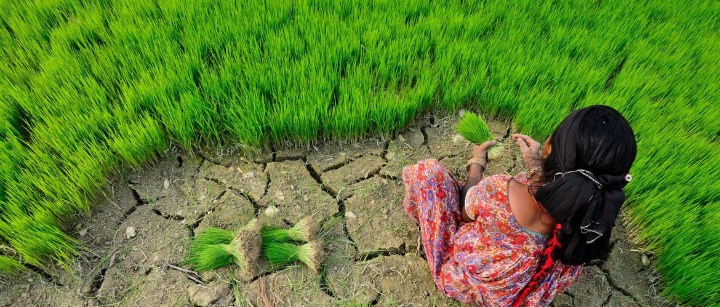small-scale farmers from developing countries produce one-third of the world’s food
Developed nations made a significant pledge thirteen years ago, at COP15 Copenhagen to channel $100 billion a year to less wealthy nations by 2020, to help them adapt to climate change and mitigate further rises in temperature. That promise, however, was not kept.
Confiance News gathered from United Nations (UN) news on Monday.
Dina Saleh, the Regional Director of IFAD highlighted the dangers of not fulfilling the promise at the 2022 United Nations Climate Change Conference or Conference of the Parties of the UNFCCC, more commonly referred to as COP27.
“This is why today we are calling on world leaders from developed nations to honour their pledge to provide the $100 billion a year in climate finance to developing nations and to channel half of that to have that amount to climate adaptation,” she underscored.
Saleh explained that failure to help rural populations to adapt could have dangerous consequences, leading to longer poverty, migrations and conflict.
Confiance News further learnt that small-scale farmers from developing countries produce one-third of the world’s food, yet they only receive 1.7 per cent of climate finance even as they are forced to cope with droughts, floods, cyclones and other disasters.
This sentiment echoed through dozens of pavilions and conference rooms in Sharm el-Sheikh on Saturday as COP27 turned its attention to the vital issues of adaptation, agriculture and food systems in the context of climate change.
“We need to help rural populations build their resilience to extreme weather events and adapt to a changing climate. If not, we only go from one crisis to the next. Small scale farmers work hard to grow food for us in tough conditions,” Sabrina Dhowre Elba, Goodwill Ambassador for the UN International Fund for Agricultural Development (IFAD), said during a press conference.
As a Somali woman, Ms. Dhowre Elba said this issue was personal: as COP27 got underway her country had experienced four consecutive failed rainy seasons, a climatic event not seen in 40 years.
“I can’t stand idly by while mothers, families and farmers are suffering across the Horn of Africa as it experiences its most severe drought in recent history,” she explained, urging developed countries to mobilize political will and investments.
“Trillions of dollars were made available to tackle the COVID-19 pandemic and its economic consequences. The same is needed for climate change. The same is needed for sustainable agricultural support. It’s crucial to the well-being and the food security of us all,” she added.
Farmers in western Nepal are learning how to cope with higher temperatures and different rainfall patterns.
Why funds for adaptation must be delivered
Ms. Saleh cautioned that there is a “narrow window” to help rural poor people to survive and protect their communities, and that crop yields could reduce by as much as 50 per cent by the end of the century.
“The choice is between adapting or starving,” she warned, urging COP27 to be about action, credibility and justice for the invisible and the silent.
Cover Photo: © CIAT/Neil Palmer Farmers in western Nepal are learning how to cope with higher temperatures and different rainfall patterns.








Leave a comment